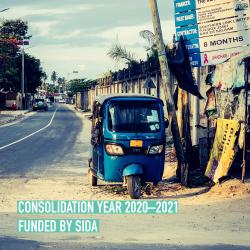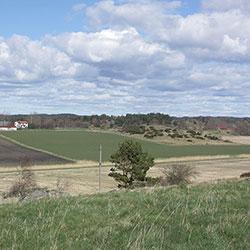Using climate science to inform policy on peri-urban issues in Africa
Anna Taylor, one of Mistra Urban Futures’ Cape Town platform researchers, recently participated in a workshop hosted by the University of Dar es Salaam in Tanzania.
Attended by participants from diverse academic, organisational and institutional backgrounds from different African cities, namely Addis Ababa, Dar es Salaam, Kampala, Lusaka and Maputo, the workshop echoed Mistra Urban Futures sentiments of co-production and learning in order to develop robust, defensible and actionable policy messages for policy makers focussing on the peri-urban area, a key challenge in sustainable development debates.
In applying the collaborative knowledge with a systems lens, a holistic position was taken, where economic and livelihood activities, natural and constructed infrastructure (such as rivers and wetlands, and roads and drainage pipes, respectively), services both natural (such as water retention and natural green spaces) and anthropogenic (such as electricity, waste removal and primary health care) are taken into account to form a nuanced and detailed understanding of the challenges in developing peri-urban areas.
In addition to this, the workshop attendees then investigated how climatic and non-climatic stressors impact on these systems, first singularly and then in combination, to understand where key climate sensitivities lie. A refined version of this methodology will now be further developed so that it can be applied elsewhere and with additional constituencies in the same cities.
Photo news overview: Anna Taylor







